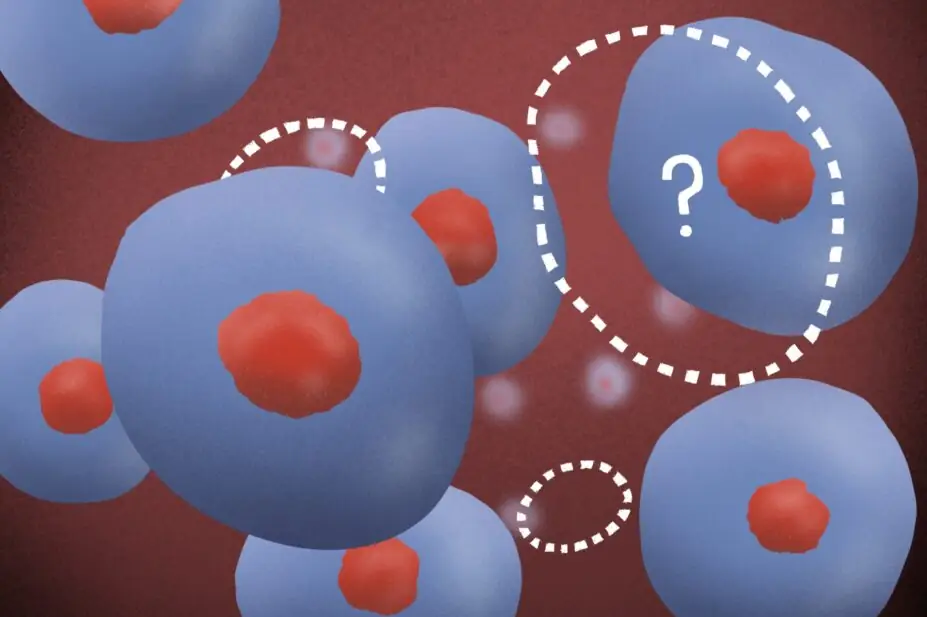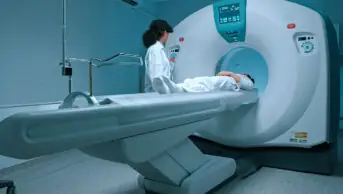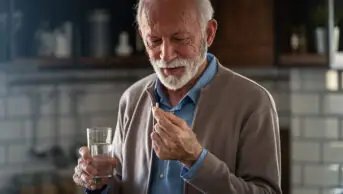
Wes Mountain/The Pharmaceutical Journal
My voluntary work promoting diversity and inclusion in the healthcare system was inspired by witnessing first-hand the disproportionate impact of COVID-19 on ethnic minority communities.
Data reporting on vaccine hesitancy in these communities prompted me to join Muslim Doctors Cymru (MDC) to work to dispel some of the myths circling on the internet using social media and to collaborate with UK Black Pharmacists Association (UKBPA) to deliver a webinar and Q&A session to promote vaccine uptake in Black communities.
Following this successful venture, I became aware of the heartbreaking story of a young British Pakistani girl in Bristol who needed an urgent stem cell donation in the summer of 2022. Stem cell transplants are needed when patients have a condition that affects their bone marrow or blood. Doctors will give new, healthy stem cells to the patient via their bloodstream, where they begin to grow and create healthy red blood cells, white blood cells and platelets. The girl’s story was publicised nationally because the family were desperate for a donor and, merely for the fact there were not enough ethnic minorities on the stem cell register, the girl struggled to get a match.
Raising awareness
At this point, I realised how little I knew about blood cancer, its prevalence, treatment options, how to donate and the existence of several stem cell donor registers, such as those held by the UK charity Anthony Nolan, Welsh Bone Marrow Donor Registry and DKMS. In July 2022, I was introduced to Anthony Nolan — which was supporting the family to find a match with an emergency appeal — and swab clinic events held at various locations around the UK to increase uptake from local Pakistani communities.
Our primary focus was to shed light on the stem cell donation inequity faced by ethnic minorities, particularly within the Muslim community
According to NHS Blood and Transplant, only 37% of transplant recipients from minority ethnic backgrounds receive the best stem cell donor match from an unrelated donor, compared with nearly 72% for Caucasian people. We do not want more of our children or members of our community finding themselves in a similar situation, so for this reason MDC partnered with Anthony Nolan, the Welsh Blood Service and other organisations to try to promote stem cell donation in our communities. See Box for more statistics.
The primary focus of our campaign — #you2cansavelives — was to shed light on the stem cell donation inequity faced by ethnic minorities, particularly within the Muslim community. The MDC project was led by a pharmacist and GP working with MDC medical students who wanted to make a difference and volunteered to hold clinics and take swabs from the public after education was provided and consent was obtained. The aim was to target people aged 18–30 years for inclusion on the Anthony Nolan register, which covers this age group. All participants aged over 30 years are signposted to the DKMS website for information on how to obtain swab kits to join its register.
Education
Initially, we educated the team by attending a swab testing training day in March 2023 at Cardiff University Students Union, organised by the Cardiff University Anthony Nolan ‘Marrow’ team. This was supported by a social media campaign with short educational videos, infographics and posters providing information on blood cancer, its treatments, why you should donate and how to donate, with MDC-tracked QR codes to order online swab kits.
I chaired an educational webinar on 14 May 2023 with a community recruitment senior manager at Anthony Nolan, a Muslim scholar and a consultant haematologist with presentations that aimed to educate, address cultural barriers, dispel misconceptions surrounding organ donation within Islamic teachings and answer questions from attendees so they felt more reassured about donating stem cells.
Over the following two weeks, swab clinics were held at two mosques in Cardiff on 20–24 May 2023 to provide further education and gain consent before completing swabs for inclusion in the register. The Anthony Nolan team organised delivery and collection of swab kits and promotional materials for use at the events.
Cultural sensitivity
A culturally sensitive population-based approach is important to promoting diversity on the register. Education sessions held in the mosque were well received because the participants really liked the idea of saving a life. As stated in the Quran: “Whoever saves a life, it will be as if they saved all of humanity” (Quran 5:32). One donor said: “I always wanted to give to charity. This campaign taught me charity can be given in different ways.”
Overall, 80 people received swab kits from the clinics and through online ordering. Focusing on educating professionals to support the recruitment of younger potential donors increases the chances of someone signing up through this campaign to go onto donate to a patient. If that happens, the project was more successful than we imagined it would be.
However, there is more engagement to be done. Pharmacy is a minority majority profession and our project complements the new indicative curricula for ‘Public Health and Health Inequalities’, which supports learning across the five years of initial education and training. Our education resources were shared with trainees completing the Health Education Improvement Wales (HEIW) Foundation training programme to widen participation locally in Cardiff.
We also continue to promote stem cell donation and education activities with leaflets at health screening events but would like to engage more students while they are in schools, colleges and university to support our cause.
We want to expand our team of medical students to include pharmacy students and trainees. Our journey with Anthony Nolan continues and we are happy for you to join us if you wish to help with our cause.
Further resources from our campaign are available on social media at @muslimdoccymru and @farzanamohamm20
Box: Important statistics
- Anthony Nolan facilitates 1,100 stem cell transplants from an unrelated donor each year for patients in the UK. For many, a transplant is their last chance of survival;
- The majority (90%) of donors donate through peripheral blood stem cell collection, a simple, outpatient procedure, similar to giving blood;
- Currently, 18% of the UK Anthony Nolan stem cell register is made up of young males, but they account for 55% of people called upon to donate;
- Blood cancer is the fifth most common type of cancer in the UK and the third biggest cancer killer. It accounts for 9% of all new cases of cancer diagnosed in the UK;
- It costs £40 to add each new donor to the register so we always need financial support;
- To join the Anthony Nolan register, you must be aged 16–30 years and healthy. Anthony Nolan’s world-leading Research Institute has shown younger donors offer better survival rates for patients.
Source: Anthony Nolan
Farzana Mohammed is pharmacy lead for Muslim Doctors Cymru, pharmacy faculty workforce lead at Herefordshire and Worcestershire Integrated Care System and clinical case manager for NHS England’s professional support and wellbeing service for the East of England.


